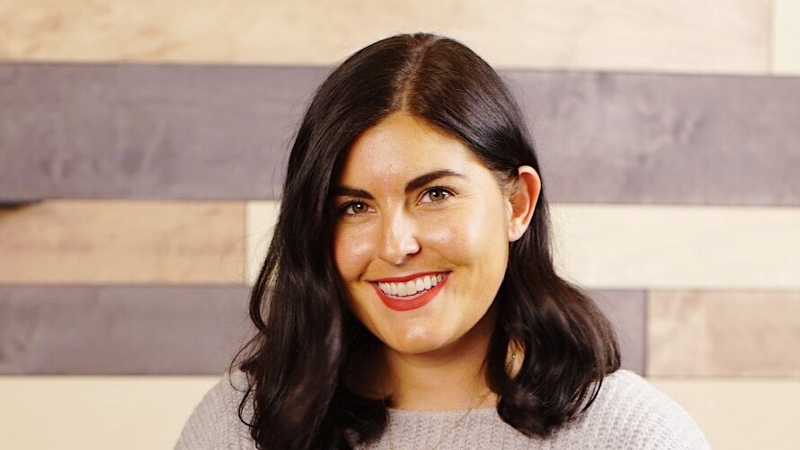The clock is ticking for Windows 10 users. With Microsoft’s official End of Support (EOS) deadline looming in October 2025, South Africans are being…
Why I closed down blockchain startup – Wala founder

SA blockchain startup Wala has closed down, the startup’s CEO Tricia Martinez has confirmed in a blog post.
The Cape Town-based blockchain-enabled fintech platform — which landed funding from Newtown Partners in 2017 — aimed to provide zero-fee financial services which included insurance, transactional banking, remittances and loans to a targeted 3.5 billion unbanked consumers in Africa.
In September the startup clinched the $100 000 grand prize in the 2018 Zambezi Prize for Innovation in Financial Inclusion (see this story).
The startup was founded in 2015 by Martinez and Samer Saab.
“Our team was devastated to say the least and our users were upset,” wrote Martinez.
SA blockchain startup Wala has closed down after its founders were unable to close funding
Writing in a post on Medium on 24 June titled “Dala: Where Things Went Wrong”, Martinez revealed that following eight month of trying and failing to secure funding, the startup had retrenched employees and turned off its app entirely.
‘We grew faster than we could imagine’
In April last year the startup launched its Dala token on the continent. Writing in the blog post, Martinez said Dala’s goal had been to create a decentralised financial system for emerging market consumers.
“We wanted to build a new financial system for consumers in countries throughout Africa who have been underserved because of their geographical location and economic status.
“We believe that financial services don’t need to come with huge fees to send money to someone or have a savings account,” she wrote.
Martinez said in the first four months Dala token users “grew faster than we could imagine”.
“Through the Wala app (a mobile financial services platform), over 150 000 users, mainly residing in Uganda, signed up and began transacting with Dala.
“Thanks to the Dala rewards model, users would sign up friends and family, transact (buying products like airtime, data, and electricity) and send payments to people and receive Dala rewards as an incentive.
“But with these rewards we ran into problems. Rewards attracted scammers or people who figured out how to take advantage of a rewards system. This led us to change our rewards model multiple times and have to remove users who were abusing our system.
‘Partners infrastructure regularly turned off’
However she said the biggest problem the startup ran into was infrastructure.
“Our partners’ systems (products and services like airtime, data, and electricity) would regularly turn off due to internet problems and/or their own poor infrastructure which meant our users were unable to transact, which was the biggest use case for Dala,” she wrote.
On top of this the startup was struck by outages from local banks and mobile money services that strained the flow of capital in and out of the system.
“This crushed our user engagement and most importantly trust in our system. It also forced us to expand the scope for Dala. We had to build even more infrastructure than we anticipated at the start. Companies that we thought were reliable were anything but that,” she said.
But she said even with these issues, the startup’s team remained confident it could grow. “As we built more of the required infrastructure, we could reignite growth and bring users into a more robust system. We just needed another injection of capital,” she added.
‘Funding was running out’
She said the startup survived off very little funding. This after the company was able to raise just $1.2-million of the $30-million it aimed to net in an initial coin offering (ICO) in 2017 (see this story).
Writes Martinez: “We were able to make $1-million go a very very long way. With over 150 000 Dala wallets and more and more partners wanting to work with us we had a lot on our plate with limited resources.
“It came time to fundraise again and given our rapid growth I expected to find a number of people wanting to support this initiative. But I was wrong. I began fundraising at the start of crypto winter, which certainly didn’t help.
“For whatever reason, not many investors wanted to back a crypto company let alone a startup focused on African markets,” she said.
She said for eight months she travelled across the globe, pitching to investors in the area of blockchain and fintech, as well as to impact investors and other African focused investors.
“I met and engaged with over 100 investors and despite our early growth numbers, we couldn’t secure the necessary financial support we needed to continue growing and operating.
Without the funding the startup had to start cutting back.
“We turned off deposits, left withdrawals open, and informed users they could no longer put money in the system to ensure no users in Uganda lost money,” she said.
“With no funding coming in we had to start cutting back. We turned off deposits, left withdrawals open, and informed users they could no longer put money in the system to ensure no users in Uganda lost money.
“Then the day came when we finally laid off most of the team and turned off the app entirely,” she said.
“For the last six months, my co-founder and I have (without resources) tried to find new capital and/or teams to realise the Dala vision.
“We are still strong believers in this vision and approach to delivering financial freedom. We will continue working to solve that problem and support others that do as well,” she said.
After her frank assessment of why the company had failed, Martinez encouraged readers to leave any questions they had for her below her blog. “I want to be transparent about this because I believe it is important for people to learn from failure and bring light to the issues in emerging markets.”
Read more: SA startup Wala wins $100k Zambezi Prize for Innovation in Financial Inclusion
Read more: SA to ‘highly benefit’ from Wala, Dala, FincomEco, BLCC partnership – Wala COO
Read more: Wala ICO nets just 4% of $30m target, but Newtown Partners praises result
Read more: Q&A: Wala CEO on tackling financial exclusion in emerging markets
Read more: Fintech startup Wala secures equity investment from Newtown Partners
Featured image: Wala CEO and founder Tricia Martinez (Supplied)

